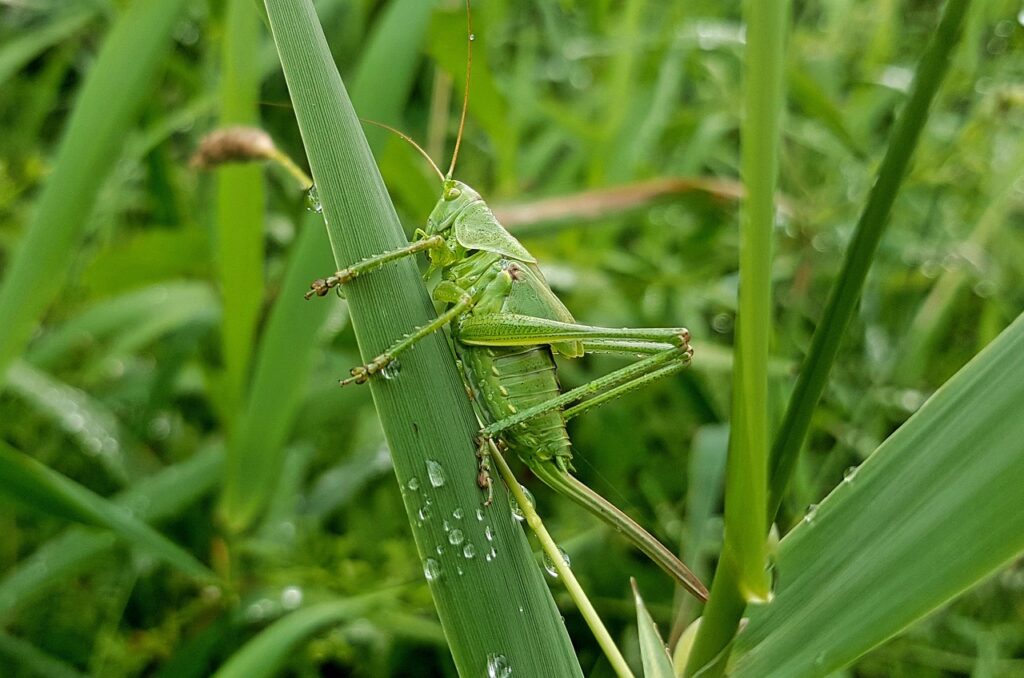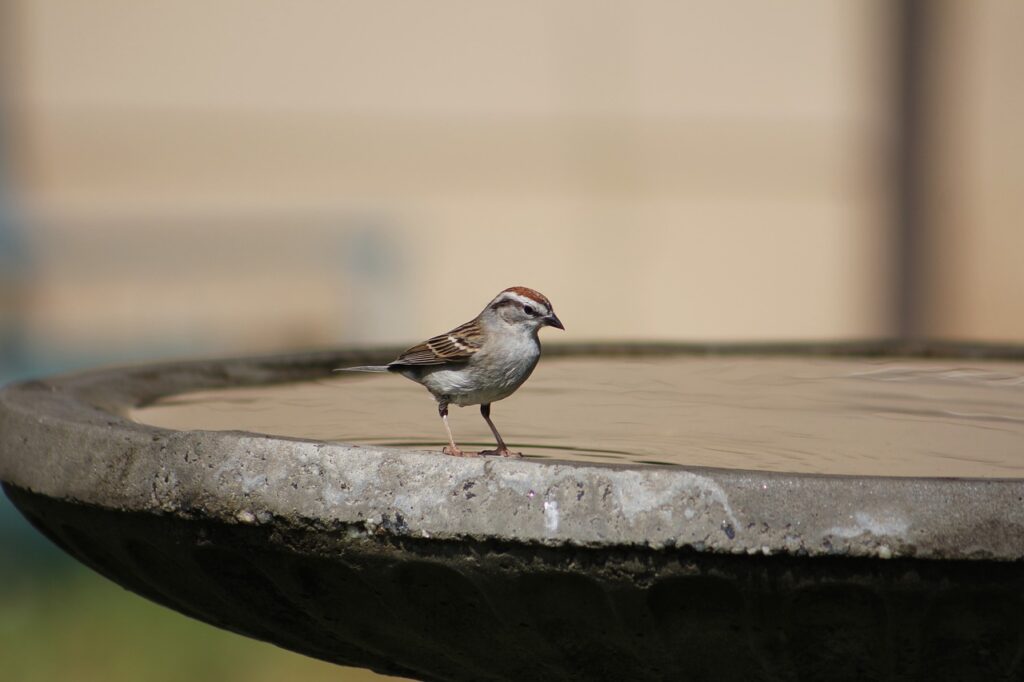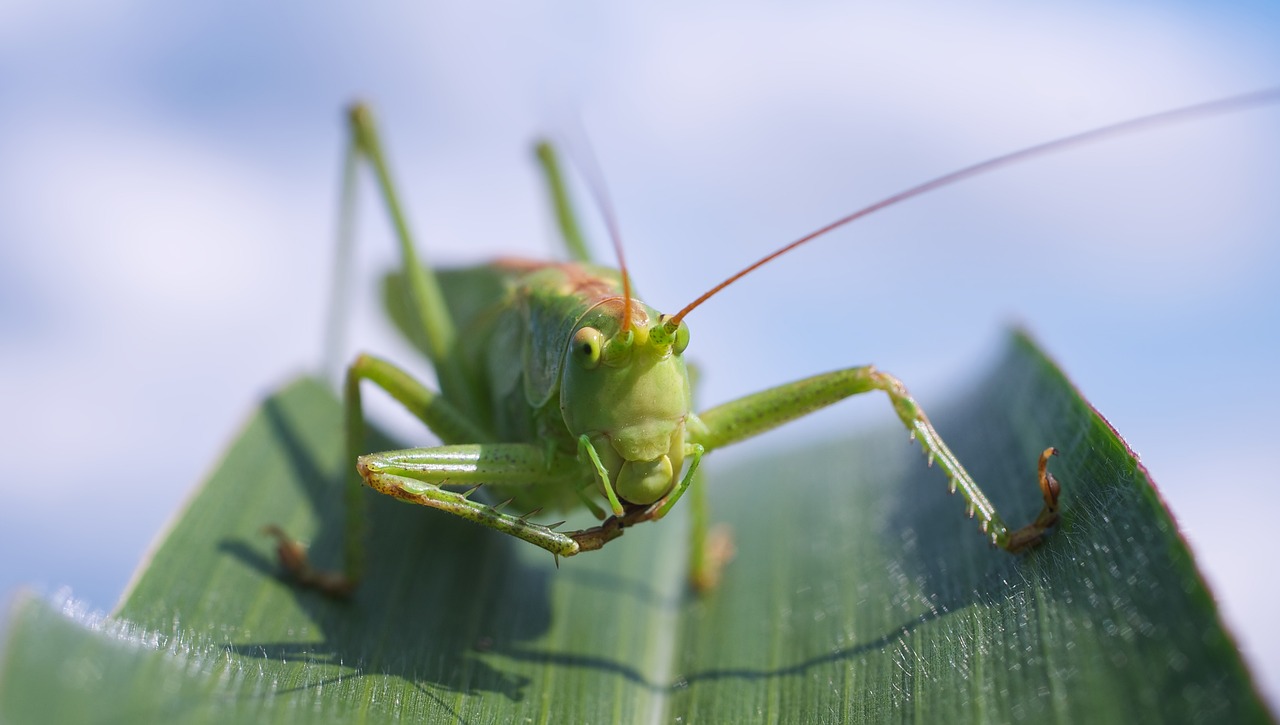Grasshoppers are common insects, so you may see a handful of them in your garden. But the question is, are the grasshoppers in your garden good or bad? Are they beneficial or harmful? Generally speaking, grasshoppers are both good and bad for your garden.
Grasshoppers are bad for your garden because…
- Grasshoppers are veracious eaters of plants. Grasshoppers are not exactly picky eaters. They can eat a wide variety of garden crops and plants. But they do have their preferences, such as beans, carrots, lettuce, onions, and sweet corn. And they do avoid some, like peas, squash, and tomato leaves. When grasshoppers eat, they weaken their victims and make them more vulnerable to diseases. In the worst cases, these insects can stunt the growth of plants and even kill them. These cases are more likely to occur when the grasshopper population is huge and not controlled.
- They can spread diseases. There is very limited research on grasshoppers being vectors for plant pathogens. In the scientific community, grasshoppers are more known for their ability to physically destroy plants through feeding and not through spreading diseases. They are also more known for getting viruses from plants and transmitting the microorganisms to cattle, horses, and other hooved animals. This is probably not a concern for you if you don’t have a commercial garden or farm. But it helps to know that grasshoppers are capable of doing such things.
- They reproduce quickly. Grasshoppers have three life stages – the egg, nymph, and adult stages. Females lay their eggs in the soil, usually hatching in the spring after about a week or two. The nymphs that emerge are veracious eaters, eating plants continuously and molting multiple times in several weeks until they become adults. If the conditions are ideal (warm), they can go through these stages quicker, making their populations explode and become a problem.

Grasshoppers are good for your garden because…
- Grasshoppers can help with nutrient cycling in your garden. Grasshoppers feeding on your plants is not entirely negative. In sustainable amounts, it can actually be beneficial. Grasshoppers can break down plant material, helping microorganisms in your garden soil to break them down even further and release more nutrients for your plants to absorb. Grasshoppers also defecate on the soil, improving soil structure and making the soil more fertile. Healthy garden soil can only lead to healthier plants.
- They can be a sign of a healthy garden. You know a garden is healthy if it attracts different kinds of animals, from relatively big ones like birds and frogs and small ones like grasshoppers. Not all these animals are bad for your garden. In fact, having animals in your garden is completely natural. It can also be beneficial because animals can help control the population of garden pests. Without animals fighting for resources and hunting each other, one species can become too comfortable, increase its population, and become legitimate garden pests. If you see a grasshopper or two in your garden, don’t panic. It’s just a sign that your garden is healthy and teeming with life.
- They are a great food source for other animals. Many people from around the world eat grasshoppers. And humans are not alone in making grasshoppers a food source. After all, insects in general are packed with amino acids and vitamins. Grasshoppers in particular can contain up to 45% protein and 54% fat. In the wild, grasshoppers serve as food for amphibians such as frogs and toads, birds like sparrows and hawks, and even mammals like mice. Grasshoppers can play an important part in your garden’s ecosystem as a food source for its inhabitants and visitors.

How to control grasshopper populations
- Attract grasshopper predators to your garden. Biological control is the process of attracting predators of the pests troubling your garden. For example, you can get rid of whiteflies by attracting parasitic wasps. You can use the same concept to get rid of the grasshoppers in your garden. Attract frogs and toads by providing a water source like a small dish with water or a small pond. Attract small birds by installing bird baths and placing bird feeders. Just be careful because pesky squirrels like bird seeds too. And you don’t want to attract mice because they are more troublesome than they are good. Your garden will also naturally attract other insects that prey on grasshoppers, like beetles, mantises, and spiders.
- Plant natural repellents to deter grasshoppers. There are certain plants that grasshoppers naturally don’t like. You can introduce these plants to your garden to act as a natural repellent for these insects. The most popular choices are cilantro and garlic. You can put them on the edge of your garden, so they can be natural barriers. You can also crush garlic and mix it with water to create a garlic solution you can spray around your garden. However, take note that natural repellents are not super effective. Don’t be surprised if you see limited results, especially if you already have an active grasshopper infestation.
- Use insecticides as a last resort. For commercial agriculture, baits and sprays are the most popular choices for grasshopper control. But you probably don’t have access to powerful baits and sprays as a garden hobbyist and amateur pest controller. You can settle for store-bought insecticides. Just make sure to follow the instructions on the label for effective and safe usage. And don’t use insecticides too frequently in your garden because they can prevent life from thriving and ruin biodiversity.
Grasshoppers are good and bad for your garden
Grasshoppers are garden pests because they eat plants veraciously. They also reproduce quickly and spread diseases. However, grasshoppers shouldn’t be a problem in your garden if you only see a few of them. In fact, they can even help in keeping your plants and soil healthy.
They can start becoming a problem if you see an explosion in their population and the destruction they cause in your plants already outweigh the benefits of having these insects around. In these cases, you can take the necessary steps to get rid of the grasshoppers in your garden.

